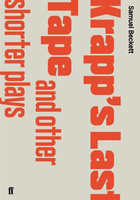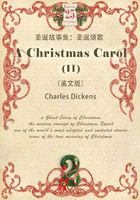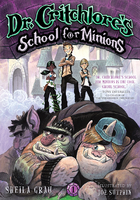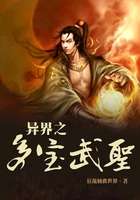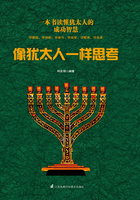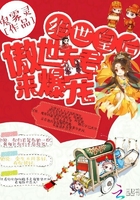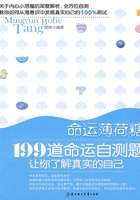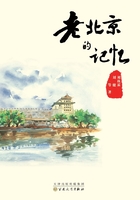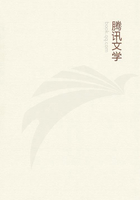While bathing in the Real River on Bataan, perhaps Ethel Thor recalled this earlier outing she had made before the war. She had gone with friends to Pagsanjan Falls, one of the most famous waterfalls in the Philippines. In the photo, Ethel is seated between the two young men. Before the war, Ethel took many photos of sights in the Philippine Islands and sent them home to her older sister, who saved them. Many nurses' photos were destroyed or lost during the war.
FEBRUARY–MARCH 1942
Bataan Peninsula
In mid-February an eerie silence fell in Bataan. Japanese bombers and fighters stopped flying overhead. Invading troops fell back. With no new casualties, nurses took a breath. The reprieve from constant danger allowed them to have a little fun. One group went to the beach for a picnic and swimming.
Another day nurses attended a masquerade ball in the officers' mess. They shared whatever clothing they had carried from Manila and wore makeup and perfume. Someone scavenged an old, hand-wound, portable phonograph and a pile of records to play music for dancing.
The American men enjoyed the break, too. Lieutenant John P. Burns, 21st Pursuit Squadron, wrote in his diary:
March 3, 1942
As a morale booster, General George [M. Parker] had arranged the party, to which he invited nurses from Bataan Hospital No. 2… . Cpl. Greenman pounded out boogie-woogie on the old piano as they danced with the 12 nurses who had accepted the invitation.
U.S. Army nurses Rita Palmer (right) and Letha McHale in happier times as they sail for duty in the Philippines, October 1941.
Unbeknownst to the nurses, Japan's Lieutenant General Masaharu Homma knew U.S. forces were growing short of food and ammunition and were too weak to attack. He pulled his men back to rest, recuperate, and prepare-to finish off the Americans.
The lull in fighting allowed U.S. soldiers to hike from their camps and visit nurses they were sweet on. Some proposed marriage. Several nurses said yes, including Rita Palmer, who had fallen in love with Navy Lieutenant Edwin Nelson of Huntington, West Virginia. He gave her a jade ring he'd bought in China for his mother. Army regulations required nurses who married to leave the service. If only!
Rita had happily left behind the decorous New England restraint of Hampton, New Hampshire, where she had grown up. Now she longed for home. Awakening on the morning of March 12, Rita heard that General MacArthur and his staff had left Corregidor for safety in Australia. MacArthur told reporters:
The President of the United States ordered me… to proceed to Australia for the purpose, as I understand it, of organizing the American offensive against Japan… . I shall return.
Some nurses and soldiers on Bataan believed that their commander had deserted them. Others argued that the United States couldn't risk the Japanese capturing General MacArthur.
In either case, humor was the balm. "I am going to the latrine," Bataan soldiers cracked when nature called, "but I shall return."
Others sang lyrics composed to the tune of "The Battle Hymn of the Republic."
Dugout Doug's not timid, he's just cautious, not afraid.
He's protecting carefully the stars that Franklin made.
Four-star generals are rare as good food on Bataan,
And his troops go starving on.
When General Jonathan Wainwright replaced MacArthur, he estimated that only 25 percent of his Bataan soldiers were combat-effective. Wainwright himself walked with a cane, his legs hurting and weak from beriberi, a disease caused by lack of thiamine, or vitamin B1.
Sharp skirmishes along the Bataan front ended the temporary peace on March 22. Sixty Japanese bombers barraged Bataan day and night. Long-range heavy artillery fired from Cavite, strengthening the air attacks plastering Corregidor.
Wainwright ordered normal radio communications from Corregidor temporarily curtailed so that U.S. soldiers could transmit thirty thousand applications for government life insurance policies.
Disease struck as many soldiers as Japanese bombs, bullets, and bayonets did. From March to April, malaria cases increased from five hundred a day to nearly one thousand. Quinine, the only drug available to treat the disease in 1942, became too scarce to do much good.
Woozy and weak with malaria, Sally Blaine managed her ward from a cot. When Army Nurse Lucy Wilson became too sick to stand, she braced herself upright to assist in surgery by squeezing her arm into a gap by the operating table. A surgeon, scalpel in hand, convulsed with malarial chills.
Besides malaria, soldiers, doctors, and nurses alike suffered dysentery, dengue fever, and beriberi, all aggravated by the growing problem of malnutrition. As illness and battle wounds increased, food grew scarce. Canned fruit, vegetables, milk, rice, beans, flour, coffee, and cocoa gave way to whatever could be bought from local farmers or hunted.
As the Japanese forced Filipino-American troops to retreat farther into the jungle, the soldiers drove the native carabao ahead of them. The carabao meat was tough and had a strong taste. Camp cooks tried different recipes to help the meat go down easier. One recipe suggested, "You put a rock in the cooking pot with the meat and when the rock melts, the carabao is tender."
Army nurses preparing lunch at Hospital No. 2. Left to right: Dietician Vivian Weisblatt, Josie Nesbit, and an unidentified nurse. Bataan.
Ethel Thor wrote home with the attitude characteristic of most of the nurses:
Hello,
Getting along OK… . Now and then we have carabao to eat, which really doesn't taste very bad-in fact, we can't tell whether it's beef or carabao.
A bulldozer cleared another large patch to expand Hospital No. 2 once again. Nurses put the wounded to bed on pieces of canvas and thatched mats on the ground. Sally Blaine paused to notice the thousands of sick and bleeding men spread on the ground in every direction.
Bataan writhed through its third month of battle. The chief nurse at Hospital No. 1 told nurses, "We've got to make what we have last. If necessary we'll have one meal every two days. I know you won't complain."
Monkeys and lizards disappeared into stew pots, and the quartermaster, in charge of distributing food to the troops and medical units, butchered the last of 250 cavalry horses and forty-eight pack mules. A fighting man's food shrank from January's half ration to one-quarter, below one thousand calories a day, mostly gummy rice supplemented by anything they could find in the jungle, even python eggs.
Ruth Straub confided to her diary,
Lately I have been having nightmares. I am always stealing heads of fresh lettuce from dead men.
But nurses preferred the gnawing in their stomachs to the bite of the questions asked by the young men in their care.
"What'll happen to us if help doesn't come?"
"Am I going to make it?"
"Most of us followed a middle course, ducking the question or avoiding a direct answer," Dr. Weinstein said. "If a patient looked like he might kick the bucket, we called in the chaplain to give him last rites, collect personal mementos, and write last messages… . More often than not, soldiers didn't have to be told."
Nurses pushed themselves beyond imagination as April arrived. Hospital No. 2 distended two and a half miles. Nineteen wards spread along the Real River, connected by foot trails snaking under the shade of banyan trees, over rocks and roots, and through groves of bamboo. The air hung heavy with yellow acacia pollen, gunpowder sulfur, and the moans, cries, and silence of more than four thousand sick and suffering men.
Josie Nesbit accepted the inevitable, though she did not voice it. The Americans were losing.
"The battle was so close we could hear the detonations and feel concussions from the big artillery," said Denny Williams. "Bombs dropped every few minutes, and we grew used to the whistle of flying steel. Used to it, but never indifferent, only so tired and starved, we walked like zombies. Most of us expected to be taken prisoner right where we were. And yet… nobody really gave up."
As beds fill in Hospital No. 2, nurses do their best to make patients comfortable on the ground.
Japanese soldiers fire artillery on Bataan.
Filipino-American soldiers were fast running out of ammunition, but Lieutenant General Homma's army grew stronger. For every Japanese soldier the Allies killed, hundreds came fresh from Japan to replace them, along with new artillery and squadrons of aerial bombers.
For Christians, April 3 was Good Friday. For the Japanese it was the anniversary of the death of their legendary first emperor, Jimmu. They honored his spirit by launching a massive artillery assault, with 150 pieces of artillery-guns, howitzers, mortars-pounding American and Filipino positions. Three thousand casualties deluged Hospital No. 2 that day.
The Monday morning after Easter, Rita Palmer was tending patients in her ward when the Japanese bombed Hospital No. 1. Ten bombs fell, one hitting the red cross in the center yard that declared the hospital and people inside were unarmed. One exploded directly on a ward. Another landed at the entrance to the hospital, blowing up a passing ammunition truck, which in turn decimated a bus full of wounded just then arriving.
"I remember coming to and having long beams of the roof over me and struggling out from under those," Rita said. "I have no idea how long I was knocked out… . I didn't even know about the piece of shrapnel in my chest for several hours. It didn't penetrate my lung. I had shrapnel in my legs, too."
The concussion hurled Juanita Redmond to the ground. She gasped for air. Her eyes felt as if they were being gouged from their sockets. Her body felt swollen and torn apart by violent pressure.
"This is the end, I thought," Juanita said. "There were mangled bodies under the ruins; a bloodstained hand stuck up through a pile of scrap; arms and legs had been ripped off and flung among the rubbish. Some of the mangled torsos were impossible to identify."
Dust, smoke, and screams filled the air. Nurses dove in, tearing through the debris in search of live patients. A corpsman climbed a tree to bring down a body blown into the top branches next to blankets and pajamas.
Hattie Brantley ran into the orthopedic ward for help and found a chaplain standing on a desk reciting the Lord's Prayer. Blood streamed down his arms and chest from a shrapnel wound.
Frances Nash, unscathed, shook with anger. "One of the wards hit contained thirty or more head cases, boys without eyes, ears, or noses. I had never before been so mad at any individual that I wanted to kill him, as I did the Japanese. I was so mad that I wasn't frightened."
The Japanese claimed that bombing the hospital was an accident. Some nurses didn't believe it.
Only sixty-five beds remained intact at Hospital No. 1. Seventy-three men had been killed, 117 further wounded by the bombs. No nurses died. Rita and another nurse injured in the attack were evacuated to Corregidor that night.
The bodies of the dead were stored until nightfall. Then a chaplain went with the grave-digging detail into the jungle. Due to the increasing number of corpses, a bulldozer dug a common grave. Frances had seen soldiers die, but nothing hit her like the night she visited a newly dug burial site to collect dog tags. "I never went back again. Too much for me, got to thinking I may be next."
NURSES AT BOTH HOSPITALS STARTED TO SEE symptoms of protein deficiency in soldiers' wasting muscles and protruding bones. Only enough food remained for each soldier to eat a few mouthfuls. Then the food was gone. With no fresh water available on the front lines, thirsty soldiers drank whatever water they could find, then showed up at the hospital sick from bacteria and dehydrated from dysentery.
The wounded appeared barefoot, their uniforms in rags. Wide-eyed with dread, they told of the enemy charging them shouting, "Banzai! Banzai!"-Japanese for "Long live the Emperor." Soldiers staggered into the hospital, laid down their rifles, and begged for food.
The last line of Filipino-American defense fragmented on April 8, three miles north of Hospital No. 2. The Japanese coiled for a final strike. The emaciated, outnumbered Filipino-American force would be pushovers. The Japanese knew it. The War Department in Washington, D.C., knew it. General MacArthur knew it. Still, he radioed from his headquarters in Australia, "There must be no thought of surrender."
Army Nurse Anna Williams (no relation to Denny Williams) climbed the hill behind Hospital No. 2. "I wanted to see what was happening, because the guns were closer and closer, and the smoke was thick," she said. "I'll never forget the dejection and the sadness and the awful look on the men as they came along the road, retreating, covered in bandages and blood and dirt."
"Quit worrying!" Josie Nesbit told herself. "Just accept what comes."

